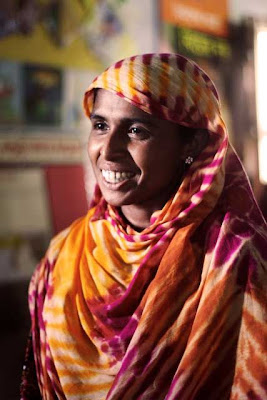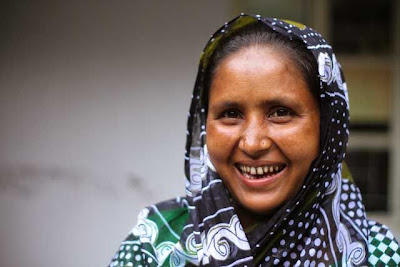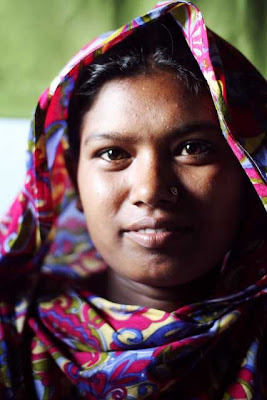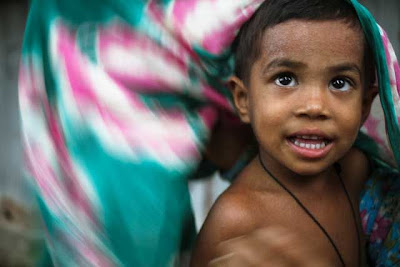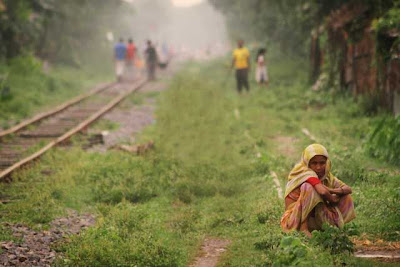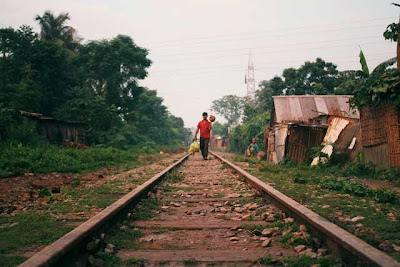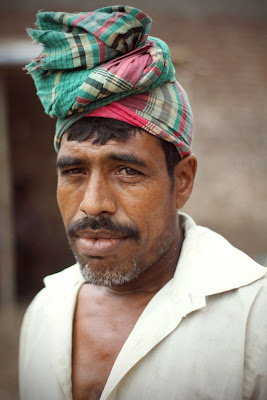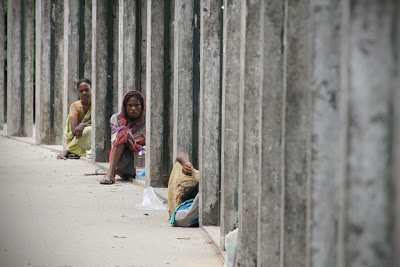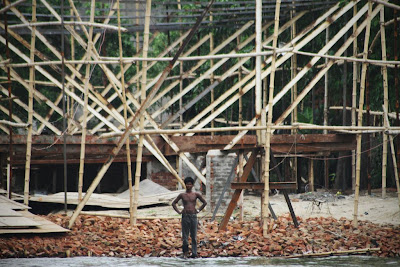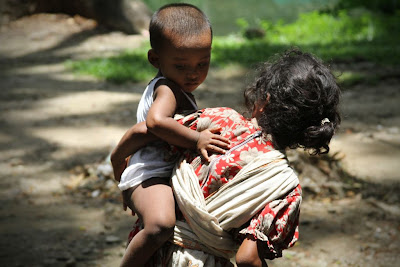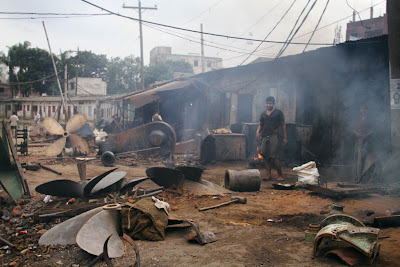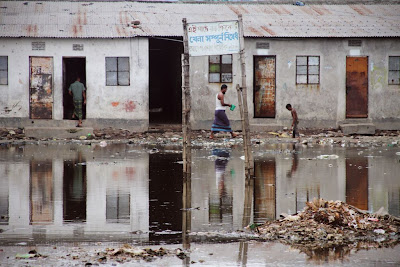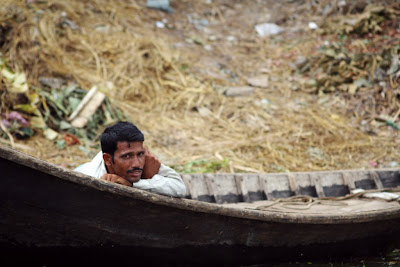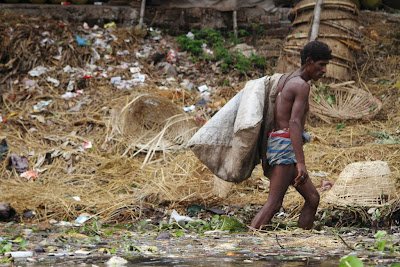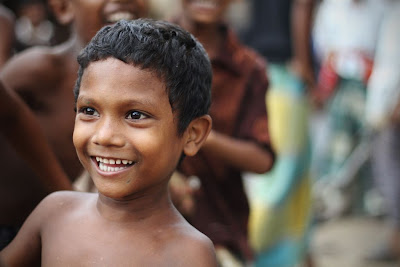It already appears in my memory as a strobe infused scene, like stop motion animation. Hallie's scream was the first thing I heard. I immediately stopped walking on the dark road, turned around and saw a man in a car, holding onto Hallie's bag while she still held on. She ran until the car became too fast at which point she was dragged along the ground until she finally let go of her bag and landed forcefully in a deep puddle which was produced by this afternoon's strong, heavy rains. Patricia and I both ran to her, desperate to see if she was hurt. Covered in muddy rainwater Hallie held herself high, told us everything was ok, she was fine. Her arm was bloody and wet. A huge group of passersby (all men) immediately gathered around us. Patricia, Hallie and I looked at each other in shock, how in the course of a few seconds we had traveled from almost pure happiness (having just eaten the most heavenly gelato), to crisis/survival mode, where the world felt like a dangerous and threatening place. We asked the essential questions. She was not seriously injured, just a few deep cuts. She did not lose anything important. Only her wallet with 2100 Taka (30 dollars), her atm card, her local cell phone and a new pair of tweezers she had just purchased.
I felt my body shaking, my breathing felt painful, my chest felt like it was being sandwich pressed from both the front and the back. We quickly motioned to the passing motorcycle rickshaw, or CNG (for Compressed Natural Gas), and asked if the driver could take us back to the BRAC center where we are living. The driver didn't understand what was going on, why so many people were yelling, or where we wanted to go. Soon we were holding up traffic and the cacophony of the honking horns only added to the chaos I felt. We made it into the CNG and for the next ten minutes we sat almost completely in silence, unable to find any words that could meaningfully describe how we were feeling.
Earlier tonight, just a few blocks away from where everything would happen, we enjoyed a delicious dinner at an Indian restaurant in celebration of seeing Hallie for the first time in a few weeks (Hallie is a fellow intern at BRAC and we were both doing field work in separate regions of the country). At dinner Hallie told us a story which upon completion we confirmed was the Best Story We Had Ever Heard. She described how while traveling with friends in India she had missed a train that all of her travel companions were on, she chased the train for a kilometer before finally stopping and watching the train continue into the distance. She only had a few rupees and no cell phone and after 24 hours and three cabs, three plane rides and a rickshaw ride, she finally arrived in the same city as her friends, only to find out that one of her friends had been in a motorcycle accident and was in the local hospital. The story went on to include a gunned goon, a crazed Dutch lawyer, three hospitals, and a member of the Indian army named Samson. After telling the story, Hallie described how her mother constantly felt high levels of worry/stress every moment that she is in Bangladesh. Twenty minutes later she was attacked.
On the way home, I looked out the window to stare at the passing city. At a long stop at an intersection I saw two women sitting on the center divide with their four small children, all whom appeared to be homeless.Their faces looked tired and worn. After three weeks, the presence of beggars, the taps asking for money, the children pulling on my arm, have almost become routine. In the vulnerability of my emotional state, the scene opened a space within myself that (as a coping mechanism) I had been covering up. I couldn't deny our common connectness and the injustice of our separate places in this world.
Sometimes it all adds up and I need to release. I think of the stories of the women we have met, who allowed us into their homes and shared their stories with us. Stories of physical torture, of rape, acid attacks, and poisoning. Stories with unfinished endings. We recorded the stories of 11 women and 2 men, all who have benefited from the work of BRAC. Many have received free legal aid services, allowing those whose rights have been violated to claim justice. Many of the women that we talked to had used the legal services of BRAC to prosecute abusive husbands who physically punished them when her parents were unable to pay the dowry they promised. These women had the courage to leave even when their only option was to move back in with their parents or a brother, often with several children.
The experience of documenting these stories feels like such a profound privilege, the connections we have been able to create have been humbling and profound. For each recording session, often at the woman’s home, we have insisted that our interpreter, Ruhul, leave the room so the women could feel free to speak openly. He explained our project to them, how we want them to tell their story with emotion and detail and that they can feel free to talk as long as they would like.
What happened was shocking. We would close the windows, spend ten minutes shooing around 50 people away who were intently staring at Patricia and me, and would then encourage them to begin speaking. Within a few seconds/minutes of speaking, many began to cry. We held their hands and nodded our heads and stared in their eyes and although we basically could not understand a word they were saying, we felt them. Many spoke for at least half an hour. Several times we stopped shooting and just all cried together and held each other and eventually, comforted each other. It became very clear, very early, that there is not enough psychosocial support for the women here. The traumas that many have experienced, mostly gender based violence, have caused deep wounds. Women do have not sufficient spaces where memories can be processed in order to begin healing. Time after time, the act of describing their memories out loud unleashed a torrent of emotions, and layers of unresolved pain. BRAC has had an incredible impact on all of these women- BRAC’s legal aid support helps women express individual choice in their lives, a basic right which the shallish system denies (in traditional dispute resolution, village elites decide outcomes with out consultation of the women involved). The women we met were strong, courageous and beautiful. Just like Hallie tonight.



